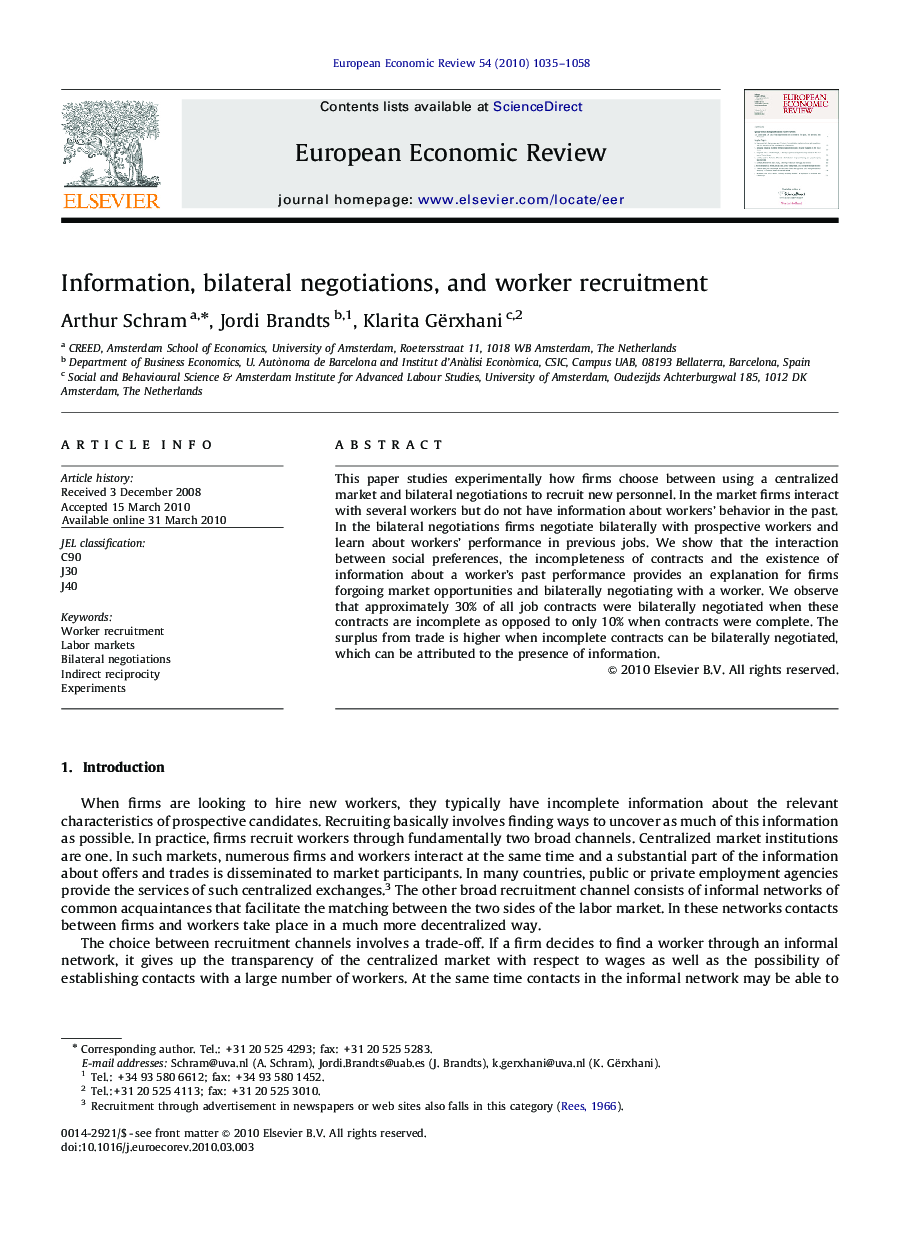| Article ID | Journal | Published Year | Pages | File Type |
|---|---|---|---|---|
| 5067166 | European Economic Review | 2010 | 24 Pages |
Abstract
This paper studies experimentally how firms choose between using a centralized market and bilateral negotiations to recruit new personnel. In the market firms interact with several workers but do not have information about workers' behavior in the past. In the bilateral negotiations firms negotiate bilaterally with prospective workers and learn about workers' performance in previous jobs. We show that the interaction between social preferences, the incompleteness of contracts and the existence of information about a worker's past performance provides an explanation for firms forgoing market opportunities and bilaterally negotiating with a worker. We observe that approximately 30% of all job contracts were bilaterally negotiated when these contracts are incomplete as opposed to only 10% when contracts were complete. The surplus from trade is higher when incomplete contracts can be bilaterally negotiated, which can be attributed to the presence of information.
Related Topics
Social Sciences and Humanities
Economics, Econometrics and Finance
Economics and Econometrics
Authors
Arthur Schram, Jordi Brandts, Klarita Gërxhani,
